Standards
What standards are supported in Alma?
- SIP2
- EDI
- OAI-PMH
- COUNTER 4
- SUSHI
- NISO Circ (NCIP 2)
- RDA – as MARC encoded fields
- MARC 21
- Dublin Core
- MARCXML
- Z39.50
- ISO2709 is supported in its MARC21/UNIMARC versions
- RFID – supported as part of our development roadmap
- KBART – we support the export and import of KBART data
- ONIX – we support the import of ONIX base license data
- AACR2 – is supported in its MARC21 version
- DCRM(B) – it is possible to catalogue all necessary characters for DCRM(B) in Alma
Does Alma support IP v6?
Does Alma support RFID?
Alma supports RFID. Alma communicates with RFID devices that are installed locally on a staff workstation. In order to allow communication between Alma and the locally running RFID software, a proxy should be installed on the workstation. The following diagram illustrates the communication:
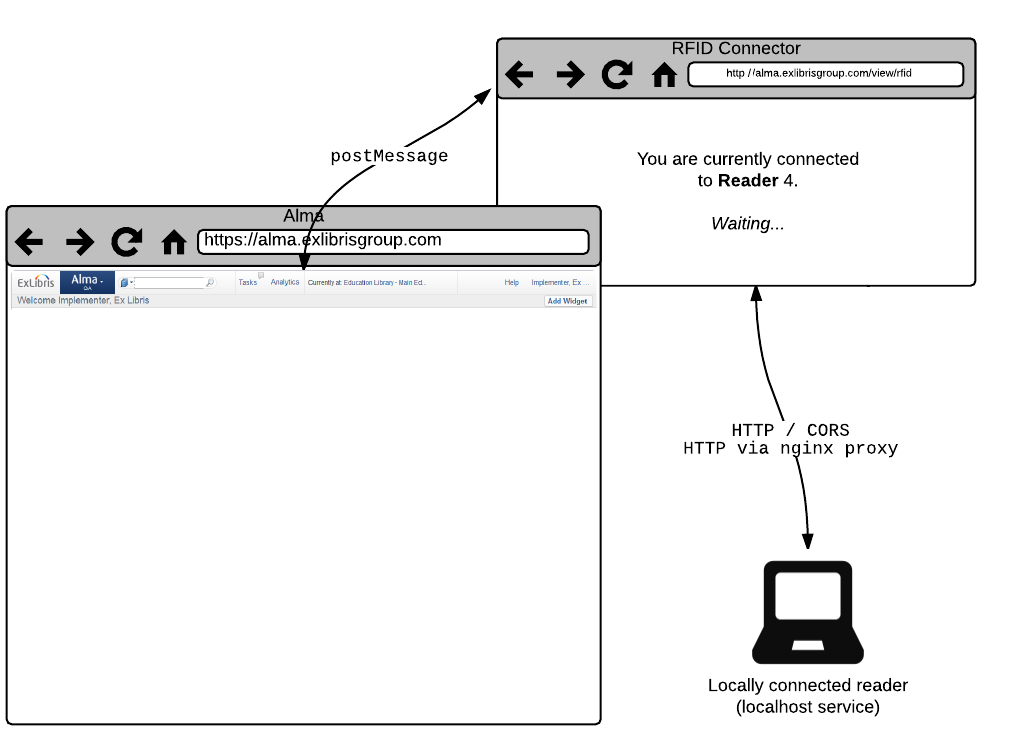
A “Read RFID” button will be displayed in the following places:
- Patron Services Workbench
- Return Workbench
- Scan In interface (both tabs)
- Repository Search
- Persistent search bar
- Physical item editor
- Quick Cataloging
- Receive
Pressing this button will fill the relevant text box with the barcode of the item which is placed on the RFID device.
In case of loan, return and scan-in operation, the item’s security bit will be updated accordingly.
The ability to “Write RFID” will be displayed in the following places:
- Physical Item Editor
- Quick Cataloging
- Receive
BIBFRAME, Linked Data
General
- On-the-fly linking of triples in distributed data stores is rather slow and does not allow sophisticated discovery. Search engine technology harvesting the metadata is necessary;
- Most of the current metadata sources do not provide RDF triple. A conversion of metadata is needed; and
- New problems arise as to how to keep RDF triples up-to-date in the index. This is a matter of scale.
- Library of Congress
- Virtual International Authority File (VIAF®), which links name authority files from national libraries and agencies into a single OCLC-hosted name authority service
- Integrated Authority File, or GND (from the German Gemeinsame Normdatei), which is managed by the German National Library with other German libraries for the purpose of removing ambiguity in personal names, subject headings, and the names of corporate bodies
- GeoNames, a geographical database with more than eight million place names
BIBFRAME
See also: Linked Data BIBFRAME and Alma.pptx and https://developers.exlibrisgroup.com/alma/integrations/linked_data/bibframe
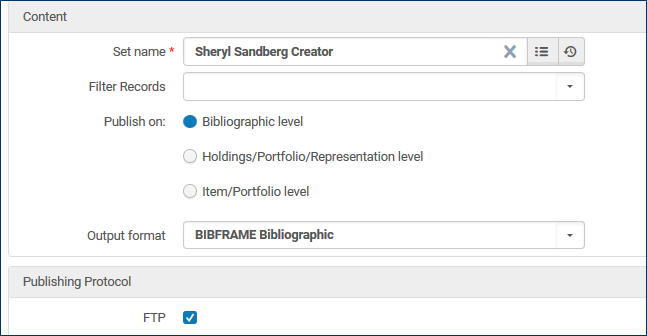
Linked Data
How does Alma support linked data?
The bibliographic metadata found in Alma contains a rich set of information and objects that can be represented in linked data.
The Alma linked open data provides access to the institution’s bibliographic information using Linked Data Principles and made available in several places, including the Alma UI and APIs.
The general workflow for exposing linked open data is described in the following diagram:
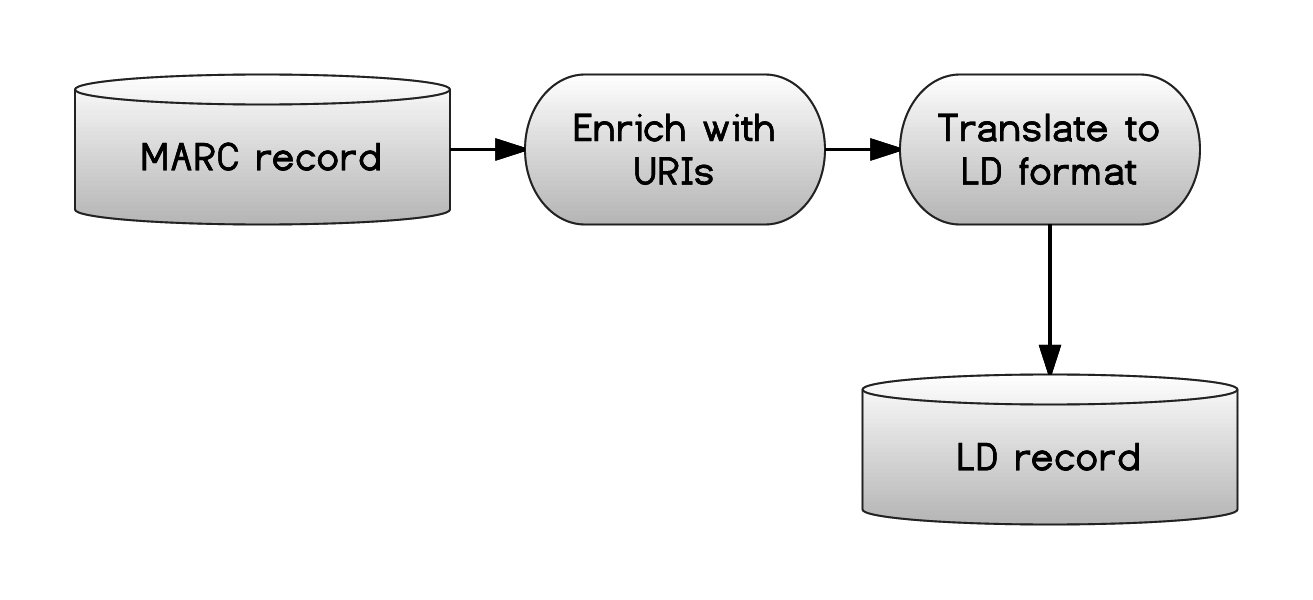
For detailed description about the URIs enrichment see our Developers Network.
Linked data can be exposed in several formats. Alma supports the following LD formats:
Each format defines the structure of the information and the entities in which it will be exposed. Alma exposes these formats in Alma UI and in URIs. For more details see the above links for each format.
How is linked data exposed?
Alma exposes linked data in the following places:
One of the linked data related projects is a set of RESTful APIs that expose linked data in JSON-LD format. Currently, the following LD APIs are supported:
- API to expose bibliographic information in JSON-LD format
- RDA/RDF APIs
A) JSONLD API
Currently, the following APIs are supported in JSONLD format:
- GET bibliographic information
- GET local authorities information
Vocabulary
The DC terms ontology, extended by other ontologies as needed, is being used as a basis for modeling the bibliographic data. See our BIB context, AUT context for full information.
Note that institutions might define their own context object, and configure Alma to use it. Refer to Alma's OLH for more details regarding the configuration of "Linked Data" external profile).
URIs
The links are created as embedded URIs, and are always in the public domain. The following links are available:
- Language
- Authors and subjects – according to the relevant authorities: Library of Congress, GND (from the German Gemeinsame Normdatei), MESH, Virtual International Authority File (VIAF®)
- Wikidata links (as of the Sep 2016 release) – To ensure a timely response, links to Wikidata will be provided via a resolver URI with the following structure:
https://open-na.hosted.exlibrisgroup...ta/{identifier type}/{identifier}.
The resolver will redirect to the relevant Wikidata page. Note: adding a ".jsonld" suffix will result in getting the data in JSON LD format rather than the HTML page. - Future plans: Publication place - GeoNames
- For BIB records that are linked to a local authority record: link to JSON-LD version of that record
This list is not exhaustive. In an effort to continually provide new linked-data services based on useful URIs, Ex Libris will enrich additional fields with URIs in accordance with research that the company is conducting.
Note:
- the current structure of identifier fields is planned to change in light of the emerging BIBFRAME 2.0 standard
- Identifier label might include characters and numbers
Using the linked data API
This functionality is opt-in. In order to activate it, an external profile should be defined in Alma. See OLH for more details about defining the “Linked Data” external profile.
- The URL for BIB information in JSON-LD is: https://open-na.hosted.exlibrisgroup.com/alma/<institution-code>/bibs/<mms id>.jsonld
- The URL for local authority record information in JSON-LD is: https://open-na.hosted.exlibrisgroup.com/alma/<institution-code>/authorities/<mms id>.jsonld
Note that the linked data API is working for .jsonld or .json suffix. Other suffix will return error.
Note also that the above URLs will connect to your Alma production catalog. It is currently not possible to work with JSON-LD against the sandbox environments.
B) RDA/RDF
As part of the Alma Link Data effort, Alma supports representation of library resources according to RDA/RDF principles, in RDA/RDF format.
Terms and definitions
RDA/RDF defines a hierarchy of library data resources: Work – Expression – Manifestation – Item. This hierarchy is usually referred to as “WEMI”. Following is an explanation of the WEMI entities:
- Work - a distinct intellectual or artistic creation
- Expression - the intellectual or artistic realization of a work
- Manifestation - the physical embodiment of an expression of a work
- Item - a single exemplar of a manifestation, reflect physical form
A real-world example may help clarify: Romeo and Juliet is a work conceived of by William Shakespeare. An illustrated edition of Romeo and Juliet written by Shakespeare is an expression of that work. A manifestation of this expression is the 1989 Penguin edition. The item is the actual book, sitting on the shelf, with a call number and barcode.
Alma APIs
2 APIs are supported:
- Retrieval of a manifestation in RDA/RDF format
- Retrieval of a work in RDA/RDF format
This functionality is opt-in. In order to activate it, an external profile should be defined in Alma.
C) Metadata Editor
While working with bibliographic records in the MD Editor, the record's link data element information is available in the lower pane of the editor.
The Linked Data List page displays the following information:
- Vocabulary field
This is pulled according to context. The default context is https://open-na.hosted.exlibrisgroup...a/contexts/bib.
If there is an active Linked Data integration profile with a path to a context, this context is used.
A Linked Data integration profile does not need to be created in order to access linked data from the Alma Repository Search results. However, one is required to expose linked data in the JSON-LD format.
- Linked data URI
- Label
For ISBN, ISSN, and OCLC, the field content is displayed. For creator and subject, the value of the heading is displayed.
Click the URI link of interest to access the linked data.
D) Repository Search
You can access linked data elements from the Repository Search results for the following types of searches:
- All titles
- Physical titles
- Electronic titles
- Digital titles
A dedicated “Linked Data” option opens a Linked Data List listing all links of the record.
COUNTER and SUSHI
Does Alma support statistics harvesting for electronic resources compliant with NISO COUNTER-SUSHI Schema?
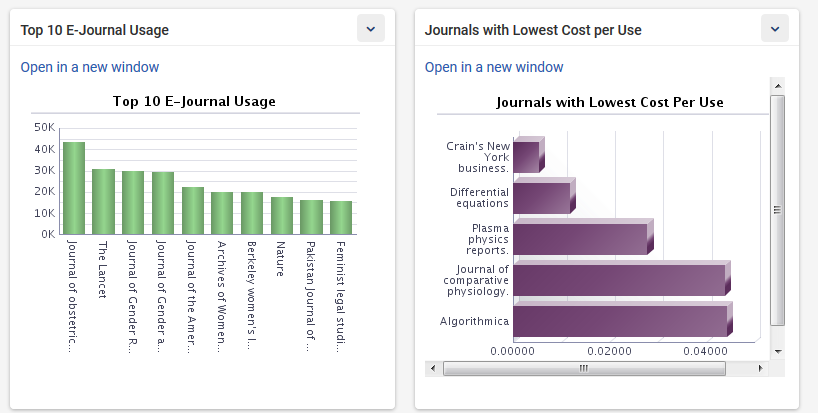

Does Alma support COUNTER 5 and SUSHI LITE?
Support for COUNTER 5 and SUSHI lite is on the Alma Roadmap. Ex Libris is closely following developments in the industry regarding these protocols and will incorporate them into Alma in a timely manner, as the industry develops. We are aware that COUNTER has stated that “In January 2019, all publishers and vendors are required to comply with the new Release of the Code of Practice” and Ex Libris product management is therefore closely following all developments.
ILL Standards
Does Alma support ILL standards such as ISO 10160: 2015, and ISO 10161-1:2014?
- Request
- Shipped
- Received
- Returned
- Checked In
- Answer Unfill
- Cancel
- Cancel Reply
- Renew
- Renew Answer
- General Messages
Link Resolution Standards
Does Alma support link resolution standards such as NISO Z39.88-2004?
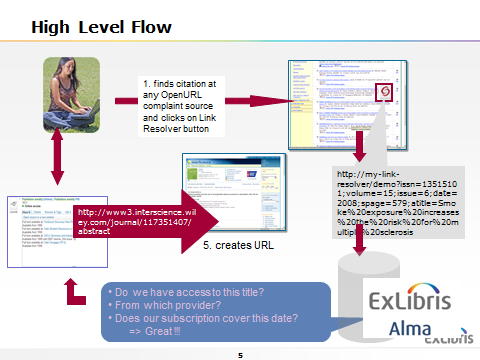
- Electronic resource availability
- Coverage information for electronic journals
- Embargo information for electronic journals
- Linking thresholds
- Full text
- Document delivery
- Resource sharing
- Request
- General Electronic Services
Support for Exchange Protocols
Does Alma support data exchange with protocols such as EDIFACT, EDI, SIP2, and NCIP?
- Integrating third party resource sharing systems with Alma in deployments where Alma is intended to make use of existing third party systems for managing the resource sharing communication, taking on itself the management of the internal library processes on which the resource sharing process relies.
- Managing a full and independent resource sharing process. Alma’s NCIP capabilities may be implemented also for directly obtaining resource sharing related information, such as holdings availability and patron eligibility for requesting a resource sharing service, as well as orchestrating the process of identifying the most suitable library resource, making it available to the requester and managing the fulfillment lifecycle of the supplied resource.
- Self check-out
- Self check-in
- Self payment of fines/fees
- 11,12 – Check –Out
- 09,10 – Check- In
- 37,38 – Fee Paid
- 93,94 – Login
- 23,24 – Patron Status Request
- 63,64 – Patron Information
How does Alma support NCIP?
-
Integrating third party resource sharing systems with Alma in deployments where Alma is intended to make use of existing third party systems for managing the resource sharing communication, taking on itself the management of the internal library processes on which the resource sharing process relies, such as:
-
Identifying the most suitable library resource for fulfilling a request
-
Making the requested resource available for the requester
-
Checking out/in a resource that is loaned as part of a resource sharing process
-
-
Managing a full and independent resource sharing process. Alma’s NCIP capabilities may be implemented also for directly obtaining resource sharing related information, such as holdings availability and patron eligibility for requesting a resource sharing service, as well as orchestrating the process of identifying the most suitable library resource, making it available to the requester and managing the fulfillment lifecycle of the supplied resource.
Does Alma adhere to standards for business continuity and information security?
Ex Libris is the first company in the library industry to achieve ISO 22301:2012 certification. ISO 22301:2012 is the first international standard published by the International Organization for Standardization (ISO) that focuses exclusively on business continuity management (BCM). ISO 22301 is a comprehensive standard that represents the highest level of commitment to business continuity and disaster preparedness.
This Ex Libris certification joins two others awarded to the company—ISO 27001:2013, certification for information security management systems; and ISO/IEC 27018:2014, certification for the protection of personally identifiable information in the cloud computing environment.
Total views:
5834
